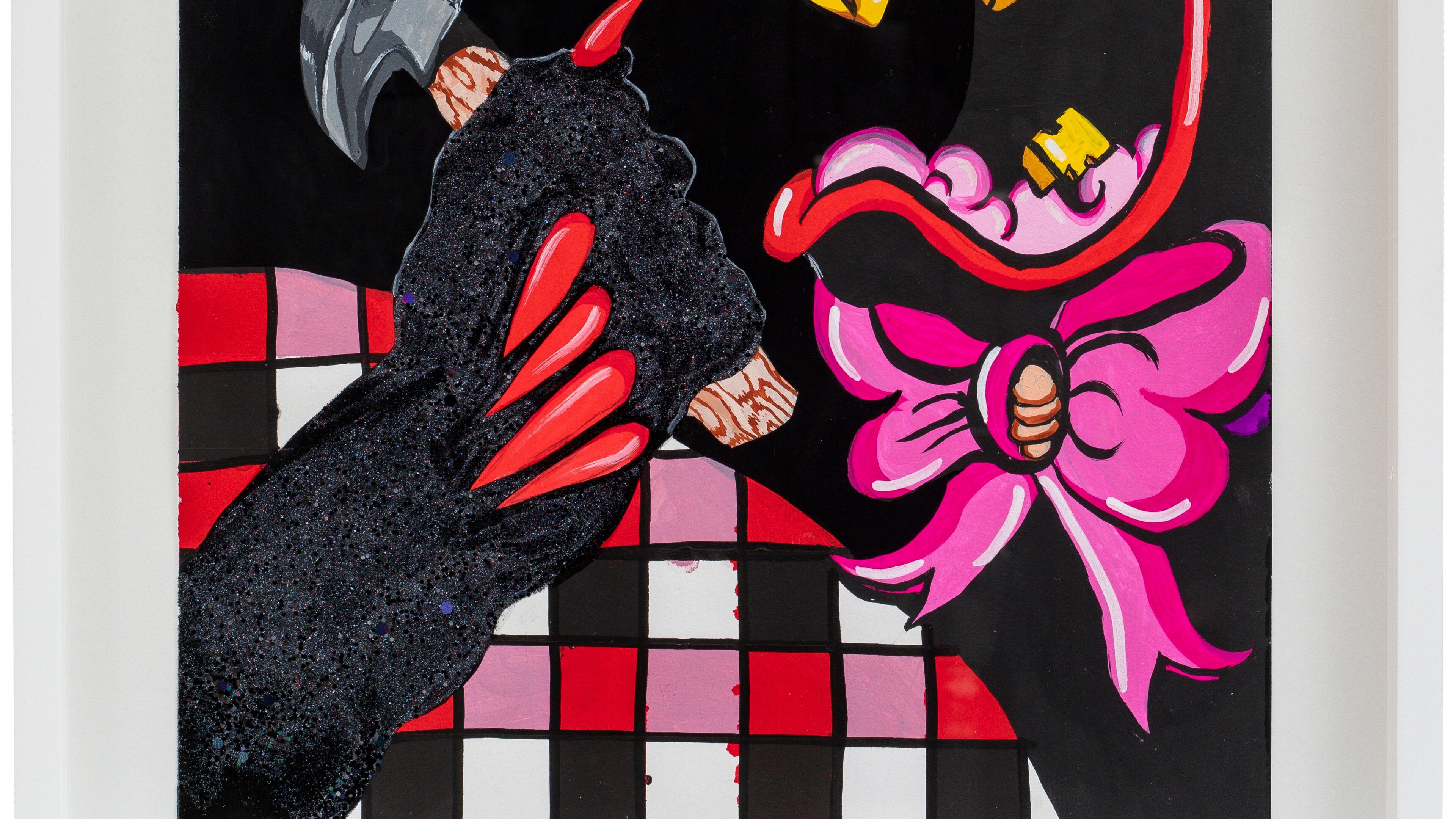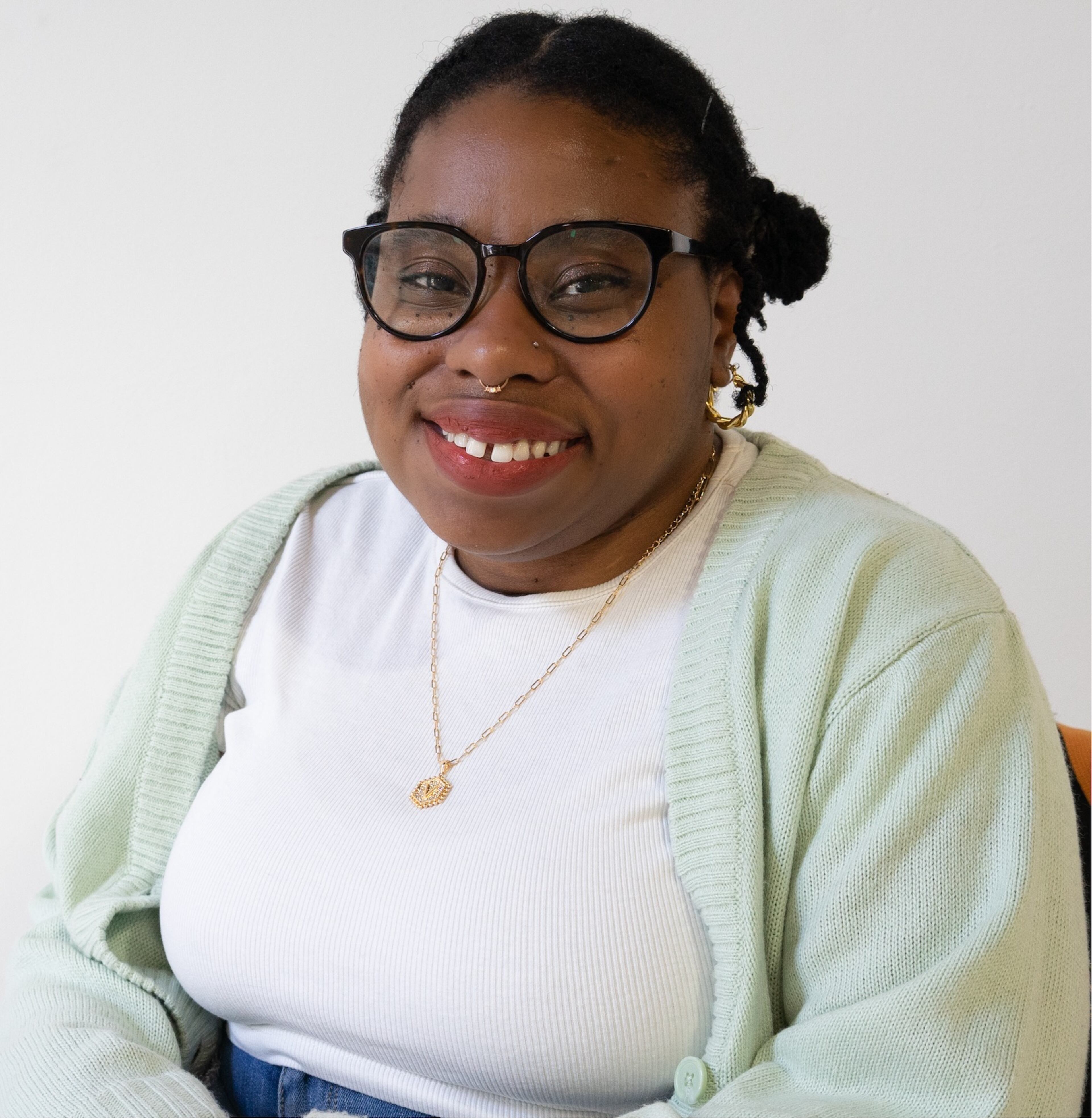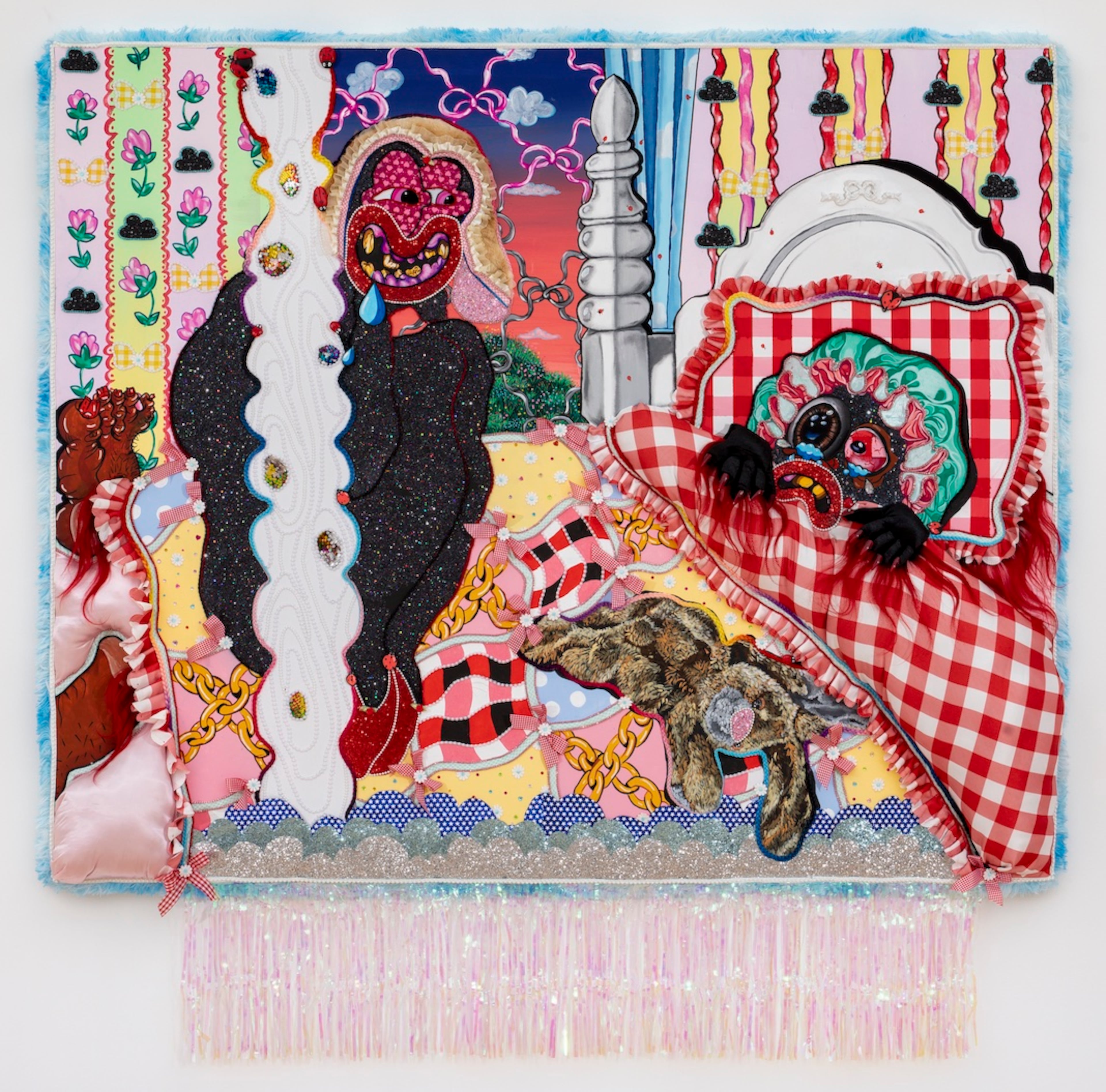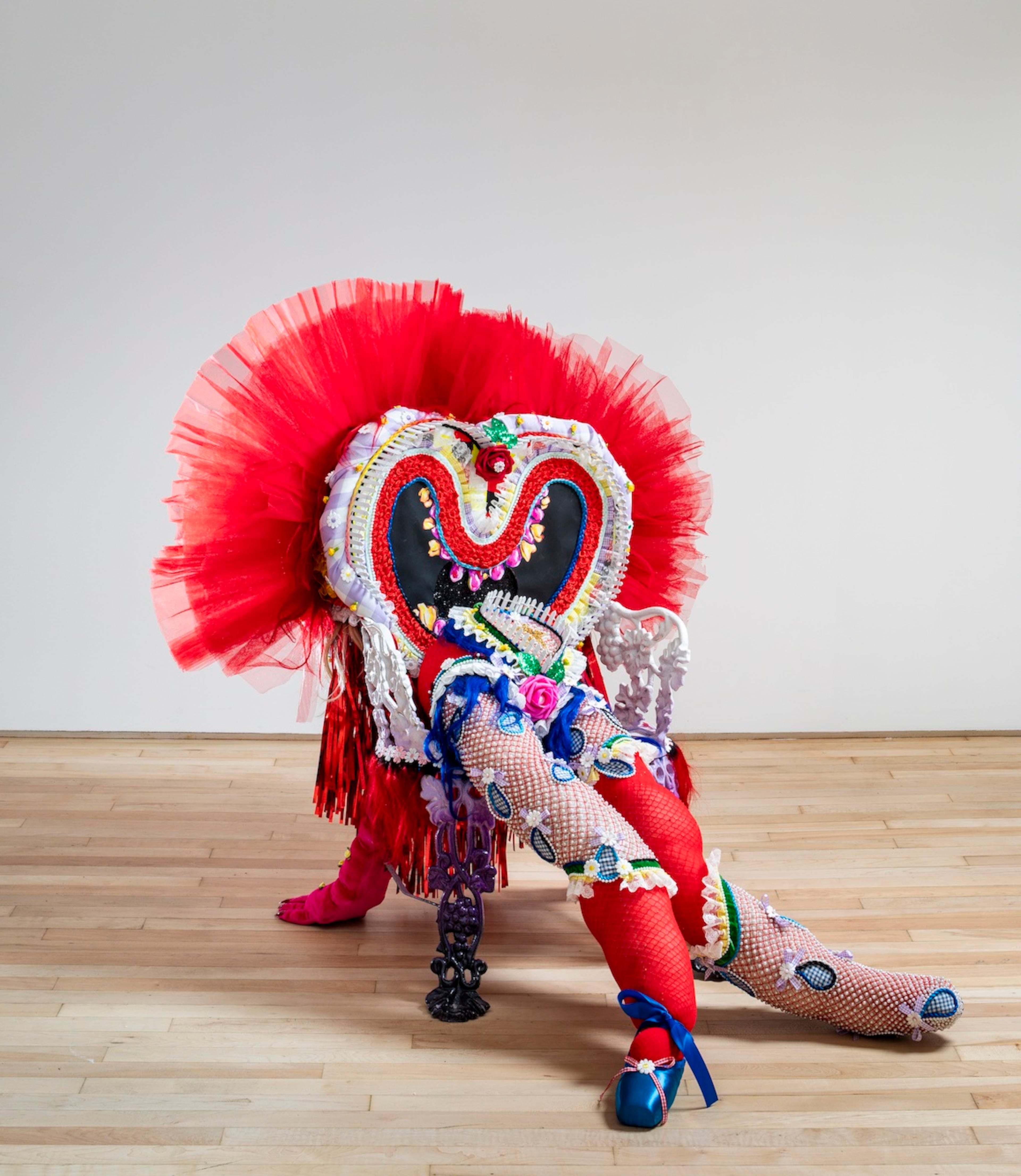Hudgens prize winner’s exhibition shows disabled ‘are worthy of making art’

The dreaminess of a child’s world is echoed within the walls at the Hudgens Center for Art & Learning.
Cloud cutouts in silver glitter float next to red-and-white plaid valances that hang over windows. Reminiscent of an elementary-school classroom, the space swirls in innocence yet to be shamed by social critique.
Moving clockwise around the room, the mood swings between personal pride and self-consciousness.
“Must Be Nice,” the latest exhibition by artist Victoria Dugger, reckons with the adultification of a young Black girl growing up with a physical disability.

“As a Black disabled woman, I just wanted to paint what I knew,” Dugger told The Atlanta Journal-Constitution.
“‘Must Be Nice’ definitely has a double meaning. It references the phrase that we all have said at some point — imagining a future or life that might be greener, but it’s still a fantasy.
“Art is all about fantasy and life coexisting.”
None of Dugger‘s pieces at the Hudgens Center’s Robert D. Fowler Gallery are showcased with titles or descriptions to explain their meanings or backstories. Each is designed under the dark and mysterious Southern Gothic theme.
The style, according to Dugger, creates tension where “horror and the South meet.”
“Southern Gothic is the heat, it’s the landscape, it’s the people, it’s the conversations that make up the South,” she said.
Based in Duluth, the Hudgens Center for Art & Learning awarded Dugger the organization’s 2024 artist of the year. “Must Be Nice” is her first solo show at the center, and Dugger’s largest in scale and installation overall.
“My subject is me, and that hasn’t always been the case historically in painting,” Dugger explained. “I wanted to showcase that people, like me, are worthy of making art.”
“Must Be Nice” is a variety of paintings, sculptures and installation art whose layers and varied textures cause multiple aspects of the pieces to appear in different dimensions.
The collection begins with a young Black girl in pigtail braids. Blue and purple hair extensions twist throughout her coils and hang in beads off her shoulders.
The girl appears physically broken in half as she sits on the ground under a bright sky. She’s lost in imagination, creating her own world with the toys she chooses to play with.
Dugger is a paraplegic artist. She became paralyzed from the waist down after undergoing cervical scoliosis corrective bone fusion surgery when she was 3.
Dugger explained the girl is a snapshot of her younger self, when she transitioned from adolescence to adulthood.
“I’m very influenced by cartoons in general, Looney Tunes and Disney more specifically,” Dugger said.
The girl wears a white glove, reminiscent of early anthropomorphic cartoons of the 20th century that evolved from blackface minstrels.
“The imagery of my work that references the more racist imagery is actually a sum of its parts,” Dugger said. “I never wanted to explicitly reference race, but Black bodies are and will always be politicized.”
That golden age of animation influence is present throughout the collection.

In a subseries of two-dimensional pieces, a caricature of a Black woman wearing a blue bonnet presents herself as a central character. Sharp red nails, jagged gold teeth and saggy breasts, she’s grotesque but simultaneously endearing, with licorice-black skin that’s sifted in glitter. Red ballet slippers adorn her feet as she walks on crutches.
“The central character is definitely a reflection of me,” she said. “It’s definitely not a one-to-one self-portrait, but it’s playing on different sides of myself.”
Dugger said the character also serves as an alter ego of herself — an amalgamation of who she truly is and who she once was.
“She’s often a caricature of prejudice or bias that I feel as a disabled Black woman,” Dugger said.
Circling the gallery, the white room appears ingenuous until finer details indicate that it’s not.
Installations show a brain and heart served on two separate platters. Another features intestines on a fancy dining plate. A pair of white satin gloves prepare to cut into the serving with surgical clamps and a scalpel.
Dugger said she underwent additional invasive procedures after the corrective bone fusion surgery when she was a young child. The process left her and her family in a vulnerable state.
“It’s kind of jarring to think about yourself exposed to others,” she said. “As someone in a wheelchair, my biggest insecurity is very visible. So, it’s hard to hide your emotions from people.”
Versions of the American flag with bicycle tassels momentarily take the gallery back to a childhood playground. A large archway made of artificial roses and fabric, symbolizing intestines, open up the room to an outdoor picnic. On a dining room table, mannequin legs erupt from a cake coated with icing.
It’s complex. But Duggar said the beauty in life is the ability to experience the complexity of different emotions.
“My work is definitely not trying to convey any one thing,” Dugger told the AJC.
“Must Be Nice” will be on display at the Hudgens Center for Art & Learning through Oct. 26.

